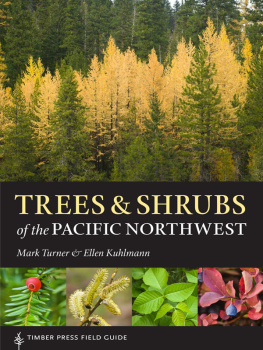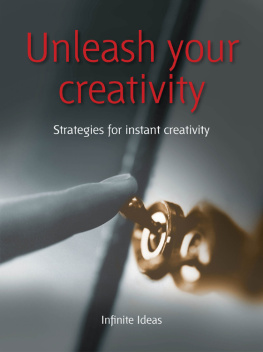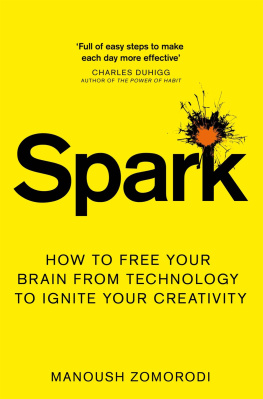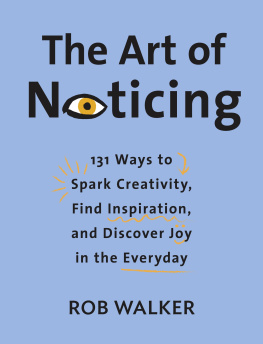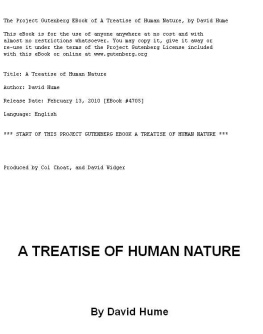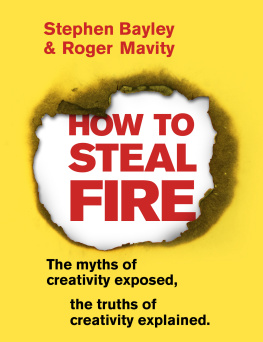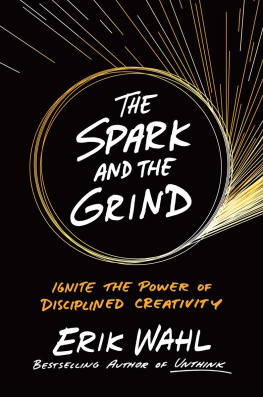Mark Turner - The Origin of Ideas: Blending, Creativity, and the Human Spark
Here you can read online Mark Turner - The Origin of Ideas: Blending, Creativity, and the Human Spark full text of the book (entire story) in english for free. Download pdf and epub, get meaning, cover and reviews about this ebook. year: 0, genre: Romance novel. Description of the work, (preface) as well as reviews are available. Best literature library LitArk.com created for fans of good reading and offers a wide selection of genres:
Romance novel
Science fiction
Adventure
Detective
Science
History
Home and family
Prose
Art
Politics
Computer
Non-fiction
Religion
Business
Children
Humor
Choose a favorite category and find really read worthwhile books. Enjoy immersion in the world of imagination, feel the emotions of the characters or learn something new for yourself, make an fascinating discovery.

- Book:The Origin of Ideas: Blending, Creativity, and the Human Spark
- Author:
- Genre:
- Year:0
- Rating:3 / 5
- Favourites:Add to favourites
- Your mark:
- 60
- 1
- 2
- 3
- 4
- 5
The Origin of Ideas: Blending, Creativity, and the Human Spark: summary, description and annotation
We offer to read an annotation, description, summary or preface (depends on what the author of the book "The Origin of Ideas: Blending, Creativity, and the Human Spark" wrote himself). If you haven't found the necessary information about the book — write in the comments, we will try to find it.
Mark Turner: author's other books
Who wrote The Origin of Ideas: Blending, Creativity, and the Human Spark? Find out the surname, the name of the author of the book and a list of all author's works by series.
The Origin of Ideas: Blending, Creativity, and the Human Spark — read online for free the complete book (whole text) full work
Below is the text of the book, divided by pages. System saving the place of the last page read, allows you to conveniently read the book "The Origin of Ideas: Blending, Creativity, and the Human Spark" online for free, without having to search again every time where you left off. Put a bookmark, and you can go to the page where you finished reading at any time.
Font size:
Interval:
Bookmark:
The Origin of Ideas
Blending, Creativity, and the Human Spark

MARK TURNER


Oxford University Press is a department of the University of Oxford.
It furthers the Universitys objective of excellence in research, scholarship,
and education by publishing worldwide.
Oxford New York
Auckland Cape Town Dar es Salaam Hong Kong Karachi
Kuala Lumpur Madrid Melbourne Mexico City Nairobi
New Delhi Shanghai Taipei Toronto
With offices in
Argentina Austria Brazil Chile Czech Republic France Greece
Guatemala Hungary Italy Japan Poland Portugal Singapore
South Korea Switzerland Thailand Turkey Ukraine Vietnam
Oxford is a registered trademark of Oxford University Press
in the UK and certain other countries.
Published in the United States of America by
Oxford University Press
198 Madison Avenue, New York, NY 10016
Oxford University Press 2014
All rights reserved. No part of this publication may be reproduced, stored in a retrieval system, or transmitted, in any form or by any means, without the prior permission in writing of Oxford University Press, or as expressly permitted by law, by license, or under terms agreed with the appropriate reproduction rights organization. Inquiries concerning reproduction outside the scope of the above should be sent to the Rights Department, Oxford University Press, at the address above.
You must not circulate this work in any other form and you must impose this same condition on any acquirer.
Library of Congress Cataloging-in-Publication Data
Turner, Mark, 1954
The origin of ideas: blending, creativity, and the human spark / Mark Turner.
pages cm
Includes bibliographical references and index.
ISBN 9780199988822
1. Creative ability. 2. Idea (Philosophy) I. Title.
BF408.T845 2014
153.2dc23
2013015132
1 3 5 7 9 8 6 4 2
Printed in the United States of America
on acid-free paper
I am grateful to the Norwegian Ministry of Education and Research and to its Centre for Advanced Study at the Norwegian Academy of Science and Letters for a fellowship year in 20112012. This book was written during my residency in that superb company.
I thank Joan Bossert, my editor at Oxford University Press; the many members of her staff who assisted in the publication of this book; Arthur Evenchik; and several very helpful anonymous reviewers.
This book draws on a number of articles, chapters, and online presentations I have published previously, including the following: The Art of Compression 2006, in The Artful Mind: Cognitive Science and the Riddle of Human Creativity, edited by Mark Turner (Oxford University Press); The Scope of Human Thought August 17, 2009, On the Human (target article in an online forum run by the National Humanities Center); The Origin of Selkies 2004, Journal of Consciousness Studies, volume 11, numbers 5-6; The Mind is an Autocatalytic Vortex 2008, in The Literary Mind, Volume 24 (2008) of REAL: Yearbook of Research in English and American Literature, edited by Jrgen Schlaeger (Tbingen, Germany: Gunter Narr Verlag); The Ghost of Anyones Father 2004, in Shakespearean International Yearbook, volume 4, edited by Graham Bradshaw, Thomas Bishop, and Mark Turner (Hants, UK: Ashgate Publishing Limited); and Double-scope stories 2003, in Narrative Theory and the Cognitive Sciences, edited by David Herman (Stanford: Center for the Study of Language and Information).
The Origin of Ideas
The Human Spark
The human contribution to the miracle of life around us is obvious: We hit upon new ideas, on the fly, all the time, and we have been performing this magic for, at the very least, 50,000 years.
We did not make galaxies. We did not make life. We did not make viruses, the sun, DNA, or the chemical bond.
But we do make new ideaslots and lots of them. They arise constantly in human minds, and sometimes tumble out of our minds to influence other minds and change the world. We have creative insight and we recognize new possibilities. Our new ideas are not fixed instinctslike a beavers instinct for building a dam or a bats instinct for echolocating and ingesting an insect. We have such instincts, certainly, but they are not the subject of this book. The subject is our amazing ability to come up with new ideas that go far beyond our local situations.
When we come up with a new idea, we can carry it with us and share it with other people. When someone teaches us a new ideathrough learning that goes well beyond instinctwe can do the same: We can carry it with us and share it with others. We use these new ideas to make new sense of the world and to make new sense of each other. We can use these new ideas to make yet newer ideas, and then we can use those newer ideas to make even newer ideas: We can have an idea that builds upon an idea that was built upon an idea that was built upon an idea
Our new ideas sometimes seem to come to consciousness fully formed, at a speed that makes biological evolution look as if it is standing still, or even as if it is going backward. We all know that some of these ideas are superior to our old, deep instincts, which remain powerfully with us. We can have ideas that our ancestors 10,000 years ago did not have. We can have ideas that our parents did not have. Every child knows this. We can have ideas that even we did not have, indeed that nobody had, just yesterday. The human pace of creativity completely outstrips any process of evolutionary change in the descent of any species, even those that breed fast.
We are the origin of new ideas. This is why we have human culture, so various and powerful and quick. Each of us is born with this spark for creating and understanding new ideas. But where exactly do new ideas come from?
The claim of this book is that the human spark comes from our advanced ability to blend ideas to make new ideas. Blending is the origin of ideas. If you have not heard of blending, that is not a surprise: The first full presentation of research on blending appeared only 10 years ago, in The Way We Think, a book which Gilles Fauconnier and I wrote. Blending, I claim, is the big lever of the cognitively modern human mind. This is a controversial claim, but I think it is true. More important, I think it is an idea anybody will want to know about. The blending hypothesis is, to my mind, the best scientific hypothesis we have for the special powers of the cognitively human mind, for the origin of ideas. I will lay out evidence, questions, challenges, and possibilities as we go along. You be the judge.
I emphatically do not mean that everything in human thought is blending or that blending is a great leap. On the contrary, blending depends on all the mental and bodily abilities that came before it, and relative to that great suite of abilities, it is small, perhaps even tiny. Life proceeded superbly before the evolution of advanced blending, and could have done very well, thank you, without it. But sometimes a small step makes all the difference. Sometimes a small difference in causes makes a huge difference in effects, and that is what happened, I propose, when we evolved the capacity for advanced blending. Most of the way we think existed before the rise of advanced blending, but once advanced blending arose, it touched and altered almost everything that preceded it. The way we think now is not a linear sum of everything that preceded advanced blending plus a separate, additional process of blending. Now, for us, advanced blending and the ways of thought that preceded it are inseparable.
Font size:
Interval:
Bookmark:
Similar books «The Origin of Ideas: Blending, Creativity, and the Human Spark»
Look at similar books to The Origin of Ideas: Blending, Creativity, and the Human Spark. We have selected literature similar in name and meaning in the hope of providing readers with more options to find new, interesting, not yet read works.
Discussion, reviews of the book The Origin of Ideas: Blending, Creativity, and the Human Spark and just readers' own opinions. Leave your comments, write what you think about the work, its meaning or the main characters. Specify what exactly you liked and what you didn't like, and why you think so.

